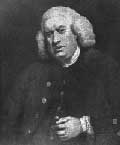Among the numerous pedagogical goals a teacher of literature must confront is that of introducing students to-- indeed, inviting them to be a part of-- an academic discourse community. In their composition classes, students are encouraged and instructed to think about the ways in which rhetorical purpose and audience shape choices of genre, tone, and argument. In literature classes, this training is further refined by discussing the academic conventions specific to writing about literary texts for an audience of specialists. Being initiated into the practices of a particular community involves mastering both the language this community speaks (for example, literary forms and terminology) and the rules of decorum that govern this community's conversations.
It has become increasingly important, however, to explore with our students the forces and investments which shape these discourse communities and the vocabularies they employ and to stress the fact that the meaning of even specialist terminology is not fixed and timeless, but rather situated in particular historical and cultural moments. A hypertext project like the "Dictionary of Sensibility" is one way of getting at the issues and problems outlined above. Asking students to compile and investigate a list of terms and concepts significant to course goals is an important start, as it gives each student the tools he/she needs to participate in the conversation, in the making of meaning that is part of the class. Creating such a "dictionary" in hypertext serves an additional pedagogical function; that is, the web or network format encourages students to think about connections, relations, links, continuities, tensions, and slippages between concepts (whether the chosen terms are related to themes, periods, texts, genres, or bodies of criticism).
Related terms:
 Back to the Launch Page
Back to the Launch Page
 Back to the list of keywords
Back to the list of keywords